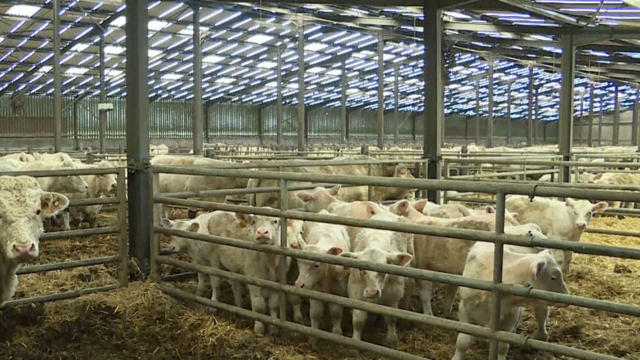The Trump administration is resisting the World Health Organization’s effort to sharply limit antibiotic use in farm animals, a move intended to help preserve the drugs’ effectiveness.
CGTN’s Jim Spellman reports.
Antimicrobial drugs — including antibiotics — save lives and are an important part of healthcare. But overuse of these drugs for decades has created a situation known as antimicrobial resistance or A-M-R – where the medicines lose their effectiveness.
“A world in which the drugs don’t work is a threat to global health security that must be addressed with the same urgency as a sudden and deadly outbreak,” Tedros Adhanom Ghebreyesus, WHO director explained.,
Antimicrobial resistance is driven in part by the use of antibiotics in livestock. The animals can develop drug-resistant bacteria that are passed on to humans through meat.
Last November, the WHO released new guidelines limiting the use of antibiotics to sick animals and only allowing drugs deemed “least important” to human health to be used in livestock.
But the U.S. Department of Agriculture has rejected those new guidelines, arguing that antibiotics can be safely used in healthy animals to prevent disease– not just treat disease.
Public health advocates argue the guidelines protect the well-being of people. “To say they are not science-based is really wrong. These were actually generally much more science-based than the actions taken by the USDA, ” Steve Roach of Food Animal Concerns Trust, or FACT, said.
Critics said the USDA approach allows farmers to claim they are using antibiotics to prevent disease, while actually using the drugs to promote growth– yielding more profitable animals, but allowing more antibiotics into the human population and increasing the risk of antimicrobial resistance.
Livestock producers are urging the USDA to push back against the WHO standards. They fear that American meat will be banned in foreign markets if the guidelines are widely adopted.
“For a lot of the public health groups in the U.S. we really think the WHO standards are the right way to go. The problem of antibiotic resistance is a huge global problem, and we are sad that the government in the United States is not on the lead but is trying to put the brakes on fighting this really big global problem, ” Roach said.
The U.S. Department of Agriculture says more research is needed to develop policies addressing anti-microbial resistance, and it will work with the W-H-O to create guidelines the U.S. finds acceptable.
 CGTN America
CGTN America
 The Trump administration is resisting the World Health Organization’s effort to sharply limit antibiotic use in farm animals, a move intended to help preserve the drugs’ effectiveness. Jim Spellman has the detail.
The Trump administration is resisting the World Health Organization’s effort to sharply limit antibiotic use in farm animals, a move intended to help preserve the drugs’ effectiveness. Jim Spellman has the detail.
